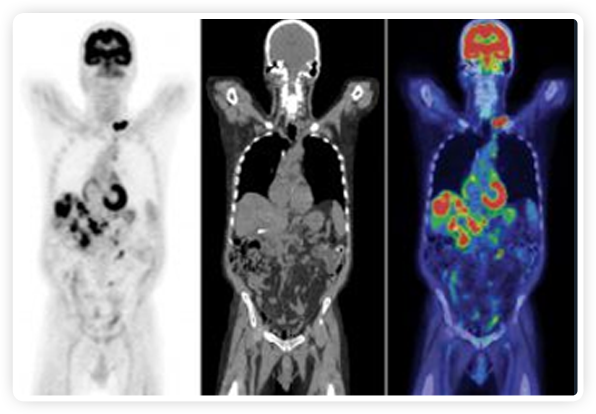Imaging May Improve Clinical Guidance in Immunotherapy
 A review article of the use of different imaging modalities in guiding immunotherapy treatment decisions highlights the distinct imaging patterns associated with immunotherapy response and progression and considers novel imaging approaches to evaluate emerging immunotherapies.
A review article of the use of different imaging modalities in guiding immunotherapy treatment decisions highlights the distinct imaging patterns associated with immunotherapy response and progression and considers novel imaging approaches to evaluate emerging immunotherapies.
The article by Dercle et al examined the use of immuno-PET, as well as new applications of CT, MRI, and fluorodeoxyglucose PET, such as radiomics and imaging of hematopoietic tissues or anthropometric characteristics. The authors noted that editing immune system function can be effective in various solid tumors and novel immune-related phenomena accompany this novel therapeutic paradigm. These effects of immunotherapy challenge the association of tumor size with response or progression, including prolonged response, pseudoprogression, dissociated or mixed response, abscopal effect, hyperprogression, and fast progression. Risks and adverse events also present new demands for imaging to guide treatment decisions. Hyperprogression, an atypical flare-up of tumor growth kinetics, can lead to premature death and requires clinical management that must be guided by successful detection at imaging.
According to the review paper, early diagnosis of immune-related adverse events is critical to initiate appropriate management, and they should not be misdiagnosed as treatment failure due to disease progression. The authors also report that none of the proposed modifications to Response Evaluation Criteria in Solid Tumors (RECIST) for immunotherapy assessment are well-suited to provide guidance for the emerging generation of immunotherapies.
The authors conclude that immune-specific biomarkers derived from new imaging modalities, such as immuno-PET, as well as innovative uses of existing information and new analytic approaches, such as radiomics, offer potential to address challenges in immunotherapy, improve clinical guidance and provide theranostic opportunities.